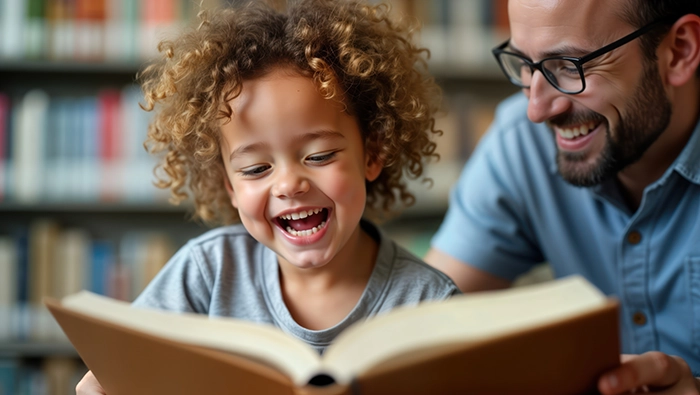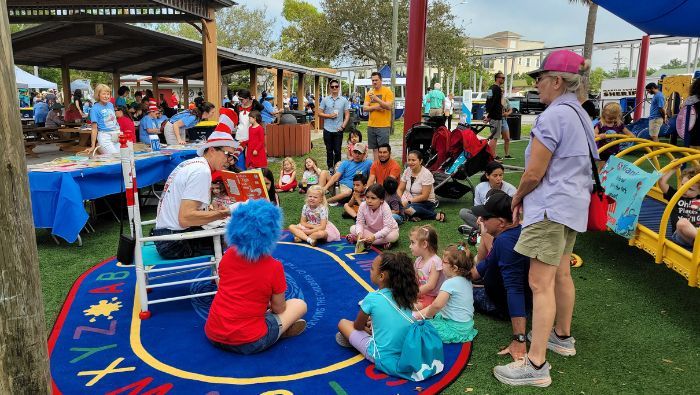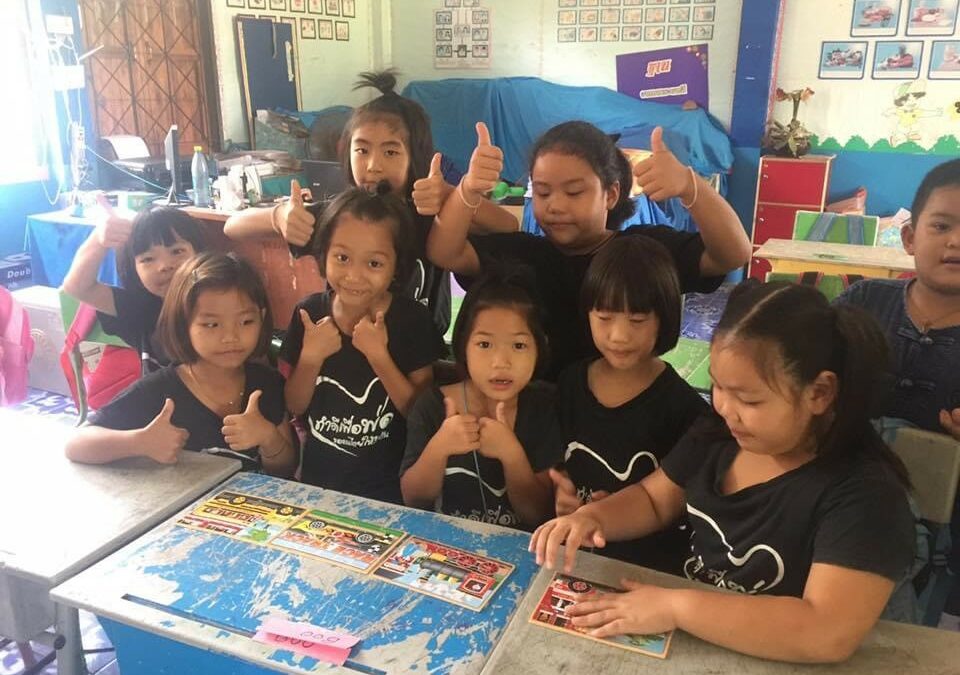
8 ways to support children’s literacy
Here are ideas that your club can use to support one of Kiwanis’ core causes.
By Destiny Cherry
Education and literacy represent one of the three Kiwanis International causes that form a continuum of impact — helping young people develop throughout childhood and into adulthood. Looking for ways your club can support kids in this way? Here are eight ideas:
- Read to children at your local library, children’s hospital or school. In addition to serving kids, it’s an easy way to build connections with organizations in your community. Host story time at your local library, read to kids in after-school programs and during designated class times, or read to young patients in a children’s hospital. If you have multilingual club members, try to diversify your reading languages to accommodate multilingual language learners (MLLs) or English language learners (ELLs).
- Tutor at schools in your area. Schools offer a wide range of opportunities to tutor students across age groups and academic levels. While high school tutors usually require subject-specific knowledge or more advanced educational experience, elementary and lower middle school grade levels are a bit more flexible and do not typically require college degrees. Tutoring can take place in a multitude of settings, depending on the school and the specific instructor’s comfort levels. If the instructor and school approve, this could take place during class time, but it can also be an after-school or summer-school service project.
- Hold a book drive. Your club can hold the drive at a community-centered location, offering snacks and drinks during your hours of operation and perhaps providing small tokens that donors can take home to keep Kiwanis in mind. Promote the donation of books that reflect a range of races, ethnicities, religions and languages. Ensuring that children see themselves represented in the stories they read is crucial to their development of self and identity. You can then divide and distribute the books to multiple locations — or partner with a location for the event and donate the books there at the end of the drive.
- Begin and fill a Little Free Library. A Kiwanis International partner, Little Free Library grows a community’s love for books and reading while expanding access to books beyond time, space or privilege. Through the promotion of free, 24-hour book exchange, Little Free Library is a tangible testament to your club’s commitment to literacy, educational development and a connected community.
- Host a social media reading challenge. Whether you host the challenge on your club’s social media accounts or on a city/community account, it could take on a variety of forms. One idea: The first family to read 50 books and submit the reviews of each book as evidence are the winners. Or your club could provide a bingo card of reading-related tasks — such as reading in a park, checking out a library book or reading nonfiction — that a family would fill out, submitting a photo of each activity. Spice up the challenge by adding book-related prizes or bookstore gift cards as incentives.
- Create reading kits for kids. Reading kits can be a fun, simple, accessible way to get everyone in your club involved in a service project. These kits require only a few supplies and some imagination. All you’ll need is colored paper, markers, pencils, glue sticks and scissors. Make it a club effort by having different members contribute different supplies. Kits can be anything from a member creating a background, then leaving space for a child to create a character and continue the story, to having members design the characters themselves — and leaving spaces for the kids to fill in the story. After creating the reading kits, take them to a library during story time or a children’s hospital and complete the reading kit alongside the kids. Include handmade bookmarks to add some flair.
- Fundraising for e-readers. Offering a built-in dictionary, translators, audiobook capabilities and access to a library of books, e-readers have been an increasingly useful way to help children who struggle with reading. But they’re not always available in large quantities to libraries, schools, hospitals and childcare centers. Raising money for one (or all) of these organizations can allow children who may be falling behind to bridge the gap and catch up with their peers. Fundraising can take on hundreds of forms. Your club can create its own idea or get inspiration from another successful approach.
- Sponsor a “literacy corner” for local businesses. To connect with local businesses — and help them extend their own support for child literacy — approach them about putting a club-sponsored “literacy corner” in their locations. It can be as simple as a bookshelf, basket or small table with children’s books and learning games in the corner of a coffee shop, diner, barber shop/salon, laundromat or local retail store. Your club can take on the responsibility of accumulating the items, while the business would oversee the maintenance and cleanliness of the corner. Hold a fundraiser for the corner, or books and games can be donated from a drive. The business could also encourage customer engagement — welcoming people to bring in lightly used books or games.
More sources of success
If you’re looking for more inspiration, check out some recent success stories on our blog. And check out more tips for promoting literacy.
Don’t forget the ways that Kiwanis Children’s Fund grants have funded many ways to read.


